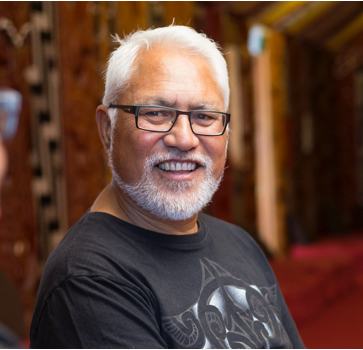Your right to speak te reo in court
Can I speak te reo Māori in court?
Yes, the Māori Language Act gives you the right to speak te reo in all courts in Aotearoa/New Zealand, including the High Court, the District Court, the Family Court, the Youth Court and the Māori Land Court/Te Kōti Whenua Māori.
You have this right whether or not you’re able to understand or communicate in English or any other particular language.
You can also speak te reo in a range of tribunals, including the Waitangi Tribunal, the Tenancy Tribunal and the Disputes Tribunal.
Who can speak Māori in court?
Māori Language Act 2016, s 7(1)
Any of the following people can speak Māori in a court or tribunal:
- the parties (the person bringing the case and the person defending it)
- any witness
- the judges or tribunal members
- the lawyers or other people representing the parties in the case, and
- anyone else if the judge or other person in charge agrees.
Can I ask that my entire hearing be conducted in te reo Māori?
Māori Language Act 2016, s 7(2)
No, you don’t have the right to require other people to speak or respond to you in te reo. However, any answers or questions put to you can be translated into te reo for you.
How will non-Māori-speaking people know what I am saying?
Māori Language Act 2016, s 7(3)
When you speak Māori an interpreter will translate what you’ve said into English.
Note: Other people in the court or tribunal can speak in English.
Who will arrange the interpreter?
Māori Language Act 2016, ss 7(3), 40, Schedule 6
The court or tribunal will organise an interpreter for you.
Only qualified interpreters of the highest standard are used. They must hold a certificate issued by the Māori Language Commission (Te Taura Whiri i te Reo Māori).
Who pays for the interpreter?
Māori Language Act 2016, s 7(3)
The court or tribunal will arrange payment for the interpreter. You don’t have to pay.
How do I tell the court I want to speak Māori?
Criminal Procedure Rules 2012, rule 1.9 District Court Rules 2014, rule 1.15 Family Court Rules 2002, rule 131 High Court Rules 2016, rule 1.11
If you’re on one side of a criminal or civil case in the District or High Court, or a Family Court case, you’ll need to complete a “Notice of Intention to Speak Māori” form. You can get a copy of this form from your local court or Community Law Centre, or from the Ministry of Justice website at www.justice.govt.nz/about/form-finder/ and search “notice of intention to speak Māori” in the search by keywords.
When you fill out the form, you’ll need to identify your iwi so that the most appropriate interpreter can be arranged.
You’ll then need to take or send the form to the court or tribunal you’ll be appearing in. You’ll need to do this within a reasonable time before you’re due to be in court (at least 10 working days before). For the address of your local court, look in the blue pages of your local telephone directory under “Justice, Ministry of,” or visit the Ministry of Justice website at www.justice.govt.nz.
You’ll also need to give a copy of the notice to the person or people on the other side of the case.
If you’re going to be a witness, you should tell the person who’s calling you as a witness that you want to speak te reo – it’s then their responsibility to notify the court and the people on the other side.
Other specific courts and tribunals may also have their own rules and processes if you want to speak te reo.
Note: If you haven’t given the required notice this doesn’t mean you won’t be able to speak Māori – but it may mean your case will be delayed while the court arranges an interpreter.

